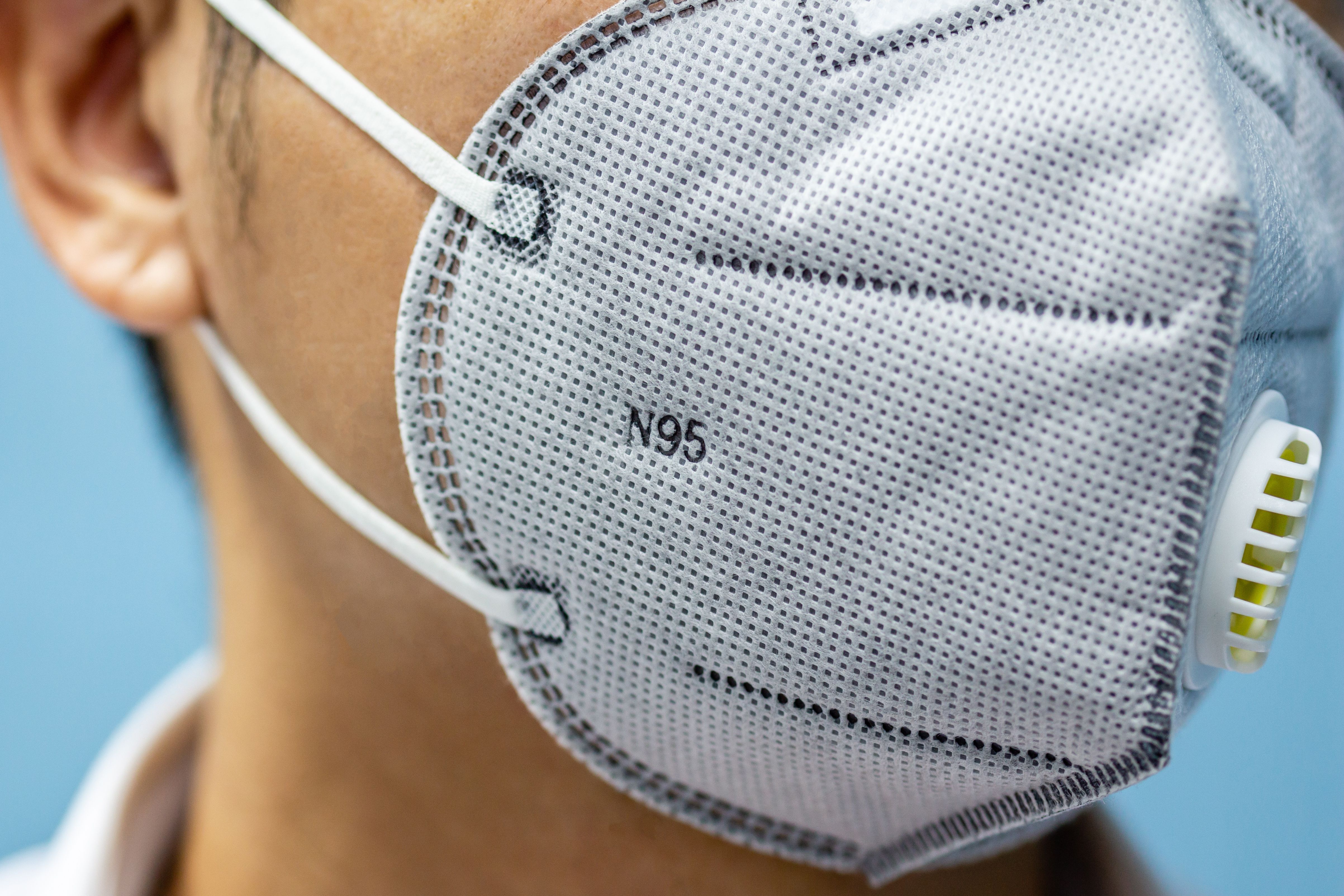Article
Study: Wearing N95 Mask Over Long Period Can Cause Cardiopulmonary Stress
Author(s):
Extended use of an N95 mask in daily life can cause various cardiopulmonary stresses, such as reduced respiration, elevated heart rate and blood pressure, and increased energy expenditure.
Wearing an N95 face mask over a long period of time can cause cardiopulmonary stresses, such as reduced respiration and elevated heart rate, a new study published in the Journal of the American Medical Association shows.
Credit: shertut - stock.adobe.com

“The findings contribute to existing literature by demonstrating that wearing the N95 mask for 14 hours significantly affected the physiological, biochemical, and perception parameters,” the researchers wrote.
The randomized clinical trial involved 30 participants (mean [SD] age, 26.1 [2.9] years; 15 women [50%]) in a metabolic chamber for 14 hours, with participants randomly receiving interventions both with and without the N95 mask.
According to the study, participants were asked to exercise in the morning and the afternoon for 30 minutes using an ergometer. In the morning, they used the ergometer at 40%–light intensity–of their maximum oxygen consumption levels, and 20%–very light intensity–in the afternoon. Blood samples were taken before and after the study.
Results of the study show that reduced respiration rate and oxygen saturation by pulse oximetry were seen within 1 hour of wearing the N95 mask, as well as an elevated heart rate (mean change, 3.8 beats/min [95% CI, 2.6-5.1 beats/min]) within 2 hours until masks were taken off at the end of the study.
Cardiopulmonary stress was increased during the light intensity exercise; heart rate (mean change, 7.8 beats/min [95% CI, 5.3-10.2 beats/min]) and blood pressure (systolic: mean change, 6.1 mm Hg [95% CI, 0.6-11.5 mm Hg]; diastolic: mean change, 5.0 mm Hg [95% CI, 0.3-9.6 mm Hg]) both increased during the exercise, the investigators found.
At the same time, the results show that respiration rate (mean change, −4.3 breaths/min [95% CI, −6.4 to 2.3 breaths/min]) and oxygen saturation by pulse oximetry (mean change, −0.66% [95% CI, −1.0% to 0.3%]) of the participants both decreased during the exercise.
Further, fat oxidation (mean change, 0.01 g/min [95% CI, −0.01 to 0.03 g/min]) and energy expenditure (mean change, 0.5 kJ [95% CI, 0.2-0.8] kJ) were at elevated levels during the exercise, the researchers said.
After the 14-hour study, researchers found decreased venous blood pH compared to samples prior to the study, as well as a decreasing trend of arterial pH. In addition, metanephrine and normetanephrine levels were increased post-study.
Participants also reported increased general discomfort due to wearing the N95 masks for such a long period of time, the investigators reported.
The researchers postulate that the effects of mask wearing were primarily due to increased respiratory resistance, followed by decreased blood oxygen levels and pH. This “contributed to sympathoadrenal system activation and epinephrine as well as norepinephrine secretion elevation,” the researchers wrote.
Investigators say the extra hormones released as a result of these processes led to increases in blood pressure and heart rate.
Face masks, especially N95s, have been proven effective in preventing the spread of COVID-19 and other airborne diseases, the researchers affirm. They aimed to evaluate the impacts of extended use of the N95 mask in daily life, noting that previous studies have been insufficient because of the short period of time participants were masked.
The researchers noted that further studies are necessary to study the effects of mask-wearing in different populations in clinical settings, noting that the young, healthy population in the study could make up for the increased bodily stresses.
They also noted that continued and chronic cardiopulmonary stress could increase the likelihood of cardiovascular diseases and overall mortality of those affected.
“Although healthy individuals can compensate for this cardiopulmonary overload, other populations, such as elderly individuals, children, and those with cardiopulmonary diseases, may experience compromised compensation,” the researchers concluded.
Reference
Bao R, Ning G., et. al. (2023) Evaluation of mask-induced cardiopulmonary stress: a randomized crossover trial. Journal of the American Medical Association. Available at https://jamanetwork.com/journals/jamanetworkopen/fullarticle/2805809. Accessed June 16, 2023.
Newsletter
Stay informed on drug updates, treatment guidelines, and pharmacy practice trends—subscribe to Pharmacy Times for weekly clinical insights.






